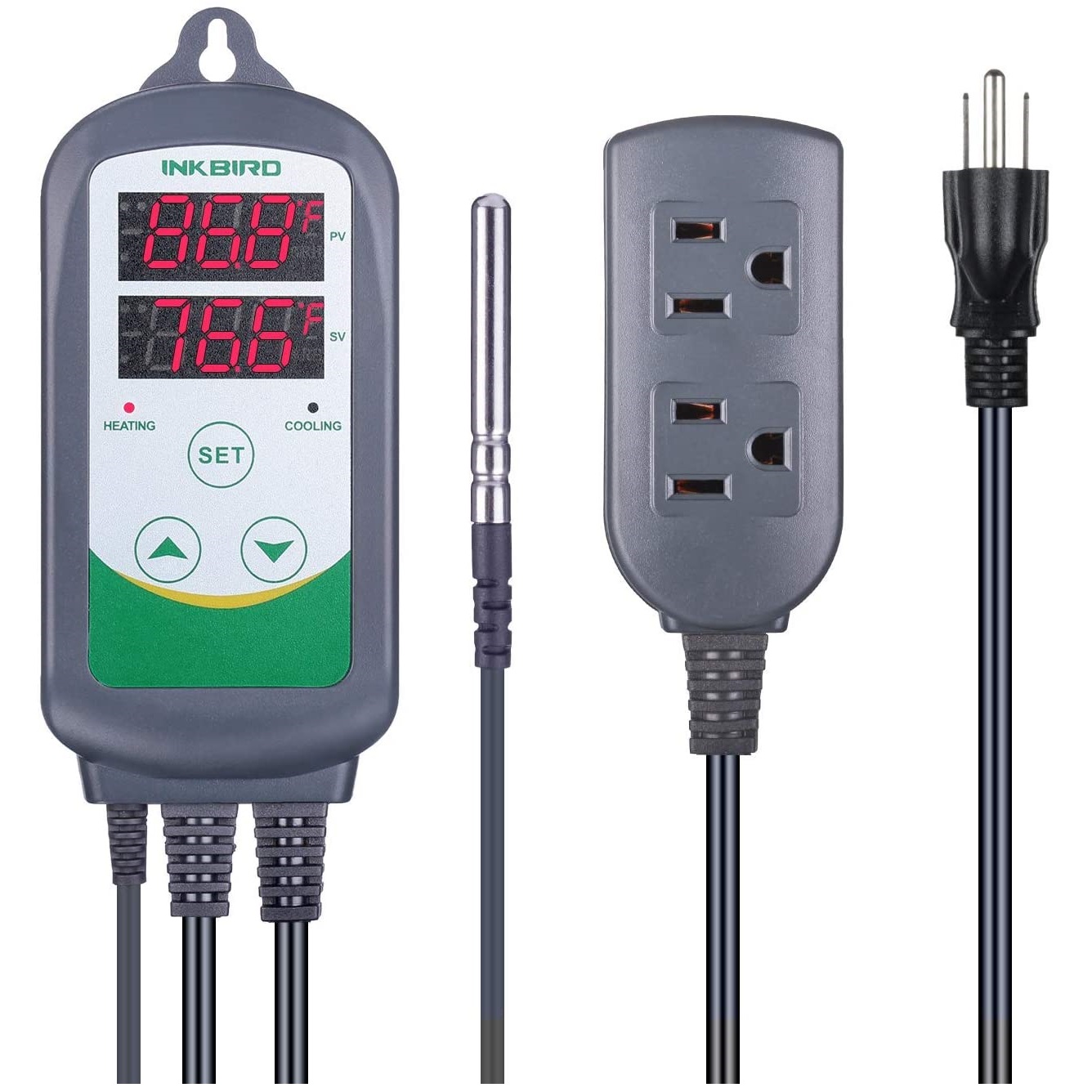
- Size: ITC-308
- Easily calibrated
- Item Weight 14.4 ounces
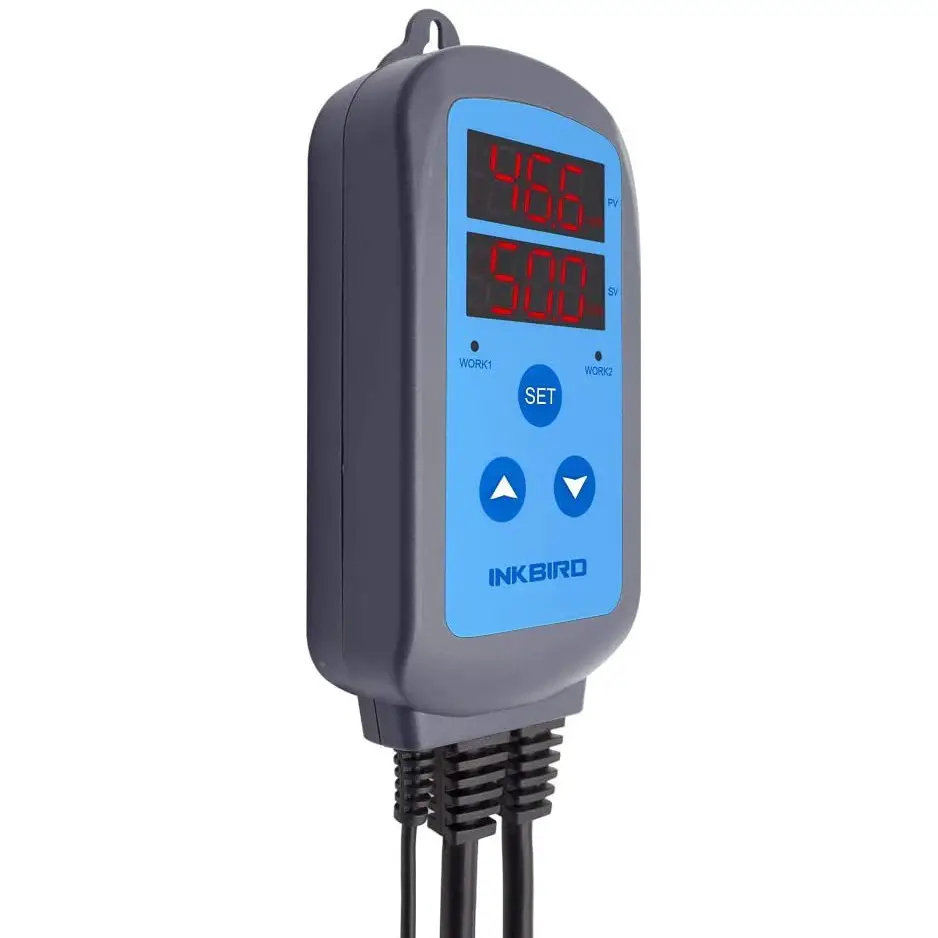
- Humidity measuring range
- Control humidity
- Item Weight 1.15 pounds
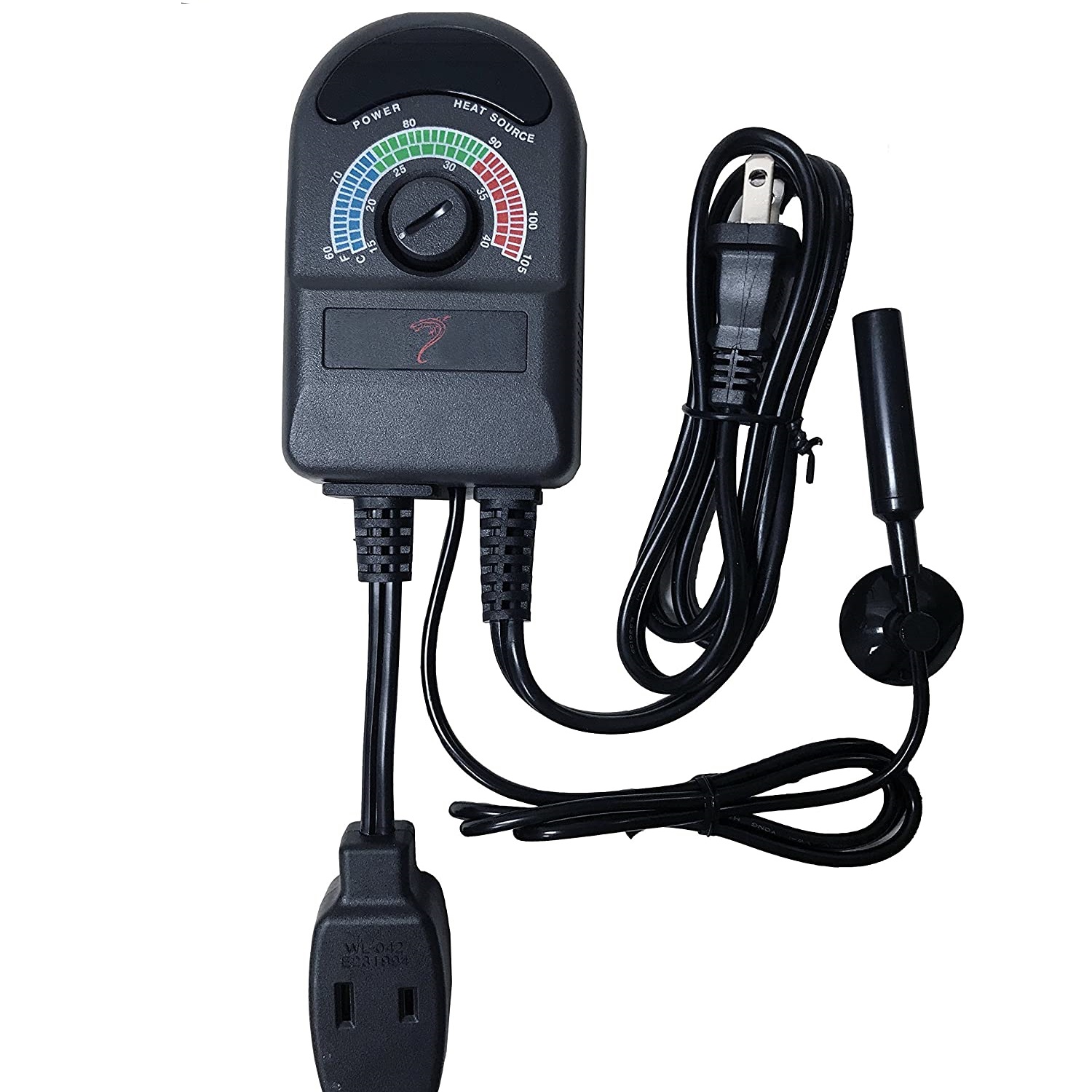
- 2 x 4 x 1 inches
- Encompass All
- 8.96 Ounces
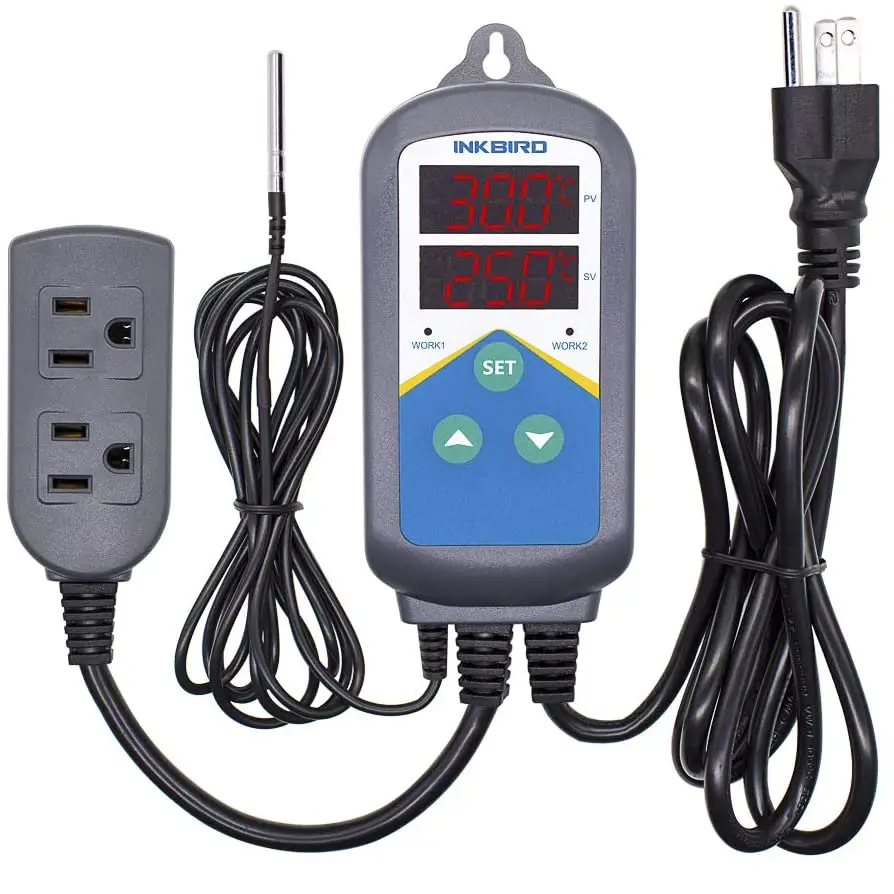
- NO COOLING CONTROL
- Item Weight 15.2 ounces
- 7.7 x 4 x 3.9 inches
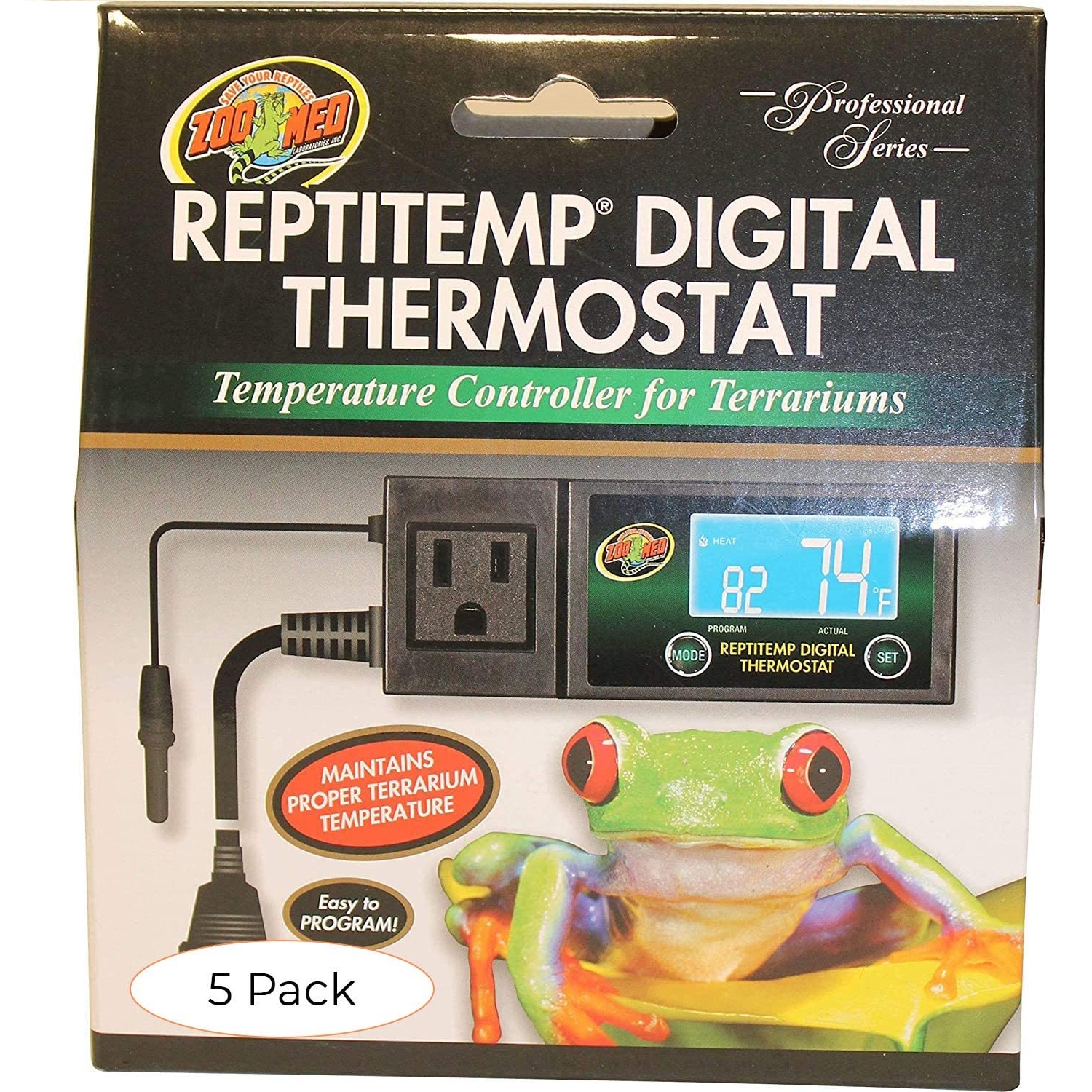
- Color: Fivе Расk
- T – 50F to 122F
- to 600 watts
Choose the Best Thermostat for Snake Rack
Customer’s Choice: the Best Rated Thermostats for Snake Rack
10 users answered this survey. Please help us improve this review!
Best thermostats for snake racks are a hot topic in the snake breeding community. There are many different types and brands of thermostats on the market, and it can be hard to determine which one is best for your needs. In this article, we will discuss the different types of thermostats available and provide reviews of some of the best models on the market. We will also offer tips on how to choose the right thermostat for your snake rack, so you can keep your snacks healthy and happy!
Inkbird ITC308 Freezer Thermostat
 The Inkbird ITC308 Freezer Thermostat is perfect for anyone who wants to keep their reptiles healthy and happy. It’s easy to sanitize, so you can be sure your reptiles are always safe and healthy, and it comes with a long cord, so you can place it wherever you need it.
The Inkbird ITC308 Freezer Thermostat is perfect for anyone who wants to keep their reptiles healthy and happy. It’s easy to sanitize, so you can be sure your reptiles are always safe and healthy, and it comes with a long cord, so you can place it wherever you need it.
Plus, it’s affordable, so you can easily keep your reptile habitat at the perfect temperature without breaking the bank. Setup is a breeze – just plug it in and adjust the settings to your liking!
Inkbird ITC308 Freezer Thermostat is a great tool for reptile enthusiasts, but it definitely has some quirks. The instructions are a bit vague, and the display can be pretty wonky Plus, the probe may give inaccurate temperatures, and the LED quality is just okay, don’t expect it to last bright for too long. But despite all its flaws, this thermostat does have some redeeming qualities. It’s easy to use and program, it’s durable, and it burns lightbulbs very efficiently. Overall, if you’re not too fussy about details, then this thermostat is a good option for you.
Inkbird Humidity Controller IHC200
 The Inkbird Humidity Controller IHC200 is the perfect solution for keeping your indoor environment at a comfortable humidity level. With alarms for high and low humidity, you can always be in control of your indoor humidity.
The Inkbird Humidity Controller IHC200 is the perfect solution for keeping your indoor environment at a comfortable humidity level. With alarms for high and low humidity, you can always be in control of your indoor humidity.
The IHC200 also allows you to set any desired humidity and differential level, so you can customize the perfect climate for your snakes. Plus, the IHC200 turns on automatically when humidity is too low, making it easy to use and always reliable.
The Inkbird Humidity Controller IHC200 is a critical tool for keeping your rooms at the perfect humidity level for reptiles. But be warned: this device is not for the faint of heart. The set-up process is notoriously difficult, and the instructions are nearly impossible to decipher. Once you finally get it up and running, you’ll need to calibrate the sensor to ensure accuracy. And don’t even think about getting it near water – the sensor isn’t waterproof. But getting this device is still worth it, as it’s the best way to maintain ideal humidity levels in your space. So, if you can stomach the challenges, this controller is well worth your investment.
Encompass All 1000W Combined – Terrarium Heat & Habitat Lighting Temperature Controller
 Encompass All 1000W Combined – Terrarium Temperature Controller is an affordable and effective way to regulate the temperature for your pets. This nifty little device comes with three outlets and can regulate the temperature well enough, thanks to its high wattage of 1000.
Encompass All 1000W Combined – Terrarium Temperature Controller is an affordable and effective way to regulate the temperature for your pets. This nifty little device comes with three outlets and can regulate the temperature well enough, thanks to its high wattage of 1000.
Plus, it’s very easy to use – simply plug it in and you’re good to go.
So, as we can see, Encompass Temperature Control does what it’s supposed to. However, there are some things that could use improvement. For starters, the unit doesn’t stay on for very long, and the lights tend to blink randomly. Next, the temp readings can be off at times, so it’s better to prepare a second thermometer for your terrarium. Plus, the probe cord could be a little longer. But despite these flaws, the Encompass All 1000W Combined remains a reliable and affordable choice for reptile owners everywhere.
Inkbird Digital Temperature Probe Controller Thermostat Timer AC
 If you are shopping for a temperature controller that offers lots of customization options, then the Inkbird Digital Temperature Probe Controller Thermostat Timer AC might be the exact thing you are searching for. This controller has a big screen and provides accurate temperature readings.
If you are shopping for a temperature controller that offers lots of customization options, then the Inkbird Digital Temperature Probe Controller Thermostat Timer AC might be the exact thing you are searching for. This controller has a big screen and provides accurate temperature readings.
Plus, it comes with a detailed guide that walks you through all the features and functions. And speaking of features, this thermostat has lots of them! You can set a day/night cycle or create a temperature tolerance range. You can also program the unit to turn on or off at specific times, so your animals would have a perfect temperature environment even when you are not home.
Despite all this, this little temperamental little device isn’t free from negatives. It can be prone to randomly shutting off and not having an alarm to warn you of extreme temperatures. But with a little patience and perseverance, you can get it to work the way you want.
Zoo Med ReptiTemp RT-600 Digital Thermostat Controller
 Zoo Med ReptiTemp RT-600 Digital Thermostat Controller is a great budget-friendly way to regulate the temperature in your reptile terrarium. This controller comes with a waterproof sensor and is easy to program, making it a great choice for reptile enthusiasts of all levels of experience.
Zoo Med ReptiTemp RT-600 Digital Thermostat Controller is a great budget-friendly way to regulate the temperature in your reptile terrarium. This controller comes with a waterproof sensor and is easy to program, making it a great choice for reptile enthusiasts of all levels of experience.
The large, easy-to-read display makes it simple to monitor the temperature in your terrarium, and the controller is compatible with most types of heat pads.
However, there are some drawbacks. First, it can’t support multiple devices at once. This means that if you have more than one reptile or a complex system, you’ll need to purchase more than one controller. Additionally, it can be difficult to mount. The reader box is also quite bright, so it may be disruptive for your reptiles. Despite these drawbacks, the ReptiTemp RT-600 is a reliable and accurate way to maintain the proper temperature for your reptile’s habitat.
Buyer’s Guide
Why is a Thermostat Essential For Your Pet Snakes?
Snakes are ectothermic animals which mean they can’t warm themselves up and rely on external sources to regulate their body temperature. In the wild, they bask in the sun to warm up and hide in the shade or burrow underground to cool down. Now that your snake is living in captivity, it is your job to provide an optimal temperature range for
them using a thermostat.
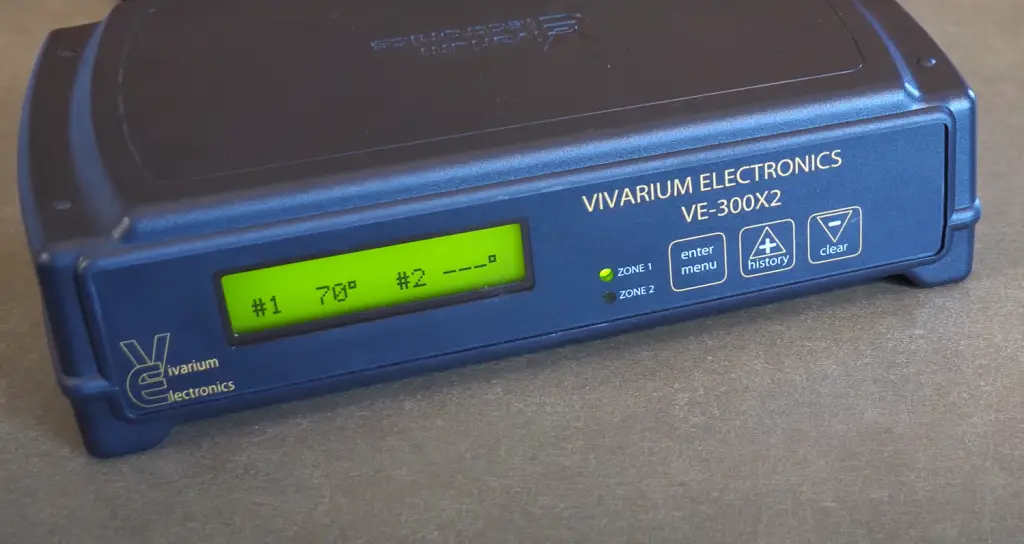
A thermostat will help you maintain a constant temperature in your snake’s enclosure within a degree or two.
Consistent temperature in your enclosure is crucial for your reptile’s health and well-being, and they help you to maintain that. Without a thermostat, your reptile could be subject to extreme temperatures that could make them sick or even kill them. A good quality thermostat will also have features like alarms that go off if the temperatures get too high or low so that you can take action quickly. [1],[2],[3],[4]
Types of Thermostats
First, let’s take a look at the different types of thermostats that are available on the market.
On/off thermostats
On/off thermostats are the most basic type of thermostat. Once you programm the desired temperature, they simply turn the heat source on or off when the temp gets too hot or cold to maintain the desired temperature level.
While on/off thermostats are very simple to use, the temperature in the enclosure will be checked at certain intervals, and if anything goes wrong, the power supply will turn off by itself.
Pulse thermostats
Pulse thermostats are another common popular type of thermostat for reptile owners. They work by turning the heat source on and off in short bursts.
That is because the flashes of light can disrupt the snake’s day and night cycle, causing them to be stressed.Otherwise, pulse thermostats are great at maintaining a consistent temperature.
Dimmer thermostats
Dimmer thermostats are the most expensive type of thermostat but they offer extremely precise temperature control. They slowly restrict the power that is received by the heater, turning the heat source on and off to maintain a consistent temperature.
However, this type of thermostat is pretty hard to set-up and can be tricky to use.
Most of the thermostats we mentioned above come in both analog and digital versions. Let’s look at how these differ.
Analog thermostats
Analog thermostats are the simplest type of thermostat and they work by turning your heat source on and off manually.
Digital thermostats
Digital thermostats are more accurate than analog thermostats and allow you to set a precise temperature. These thermostats are much more sophisticated and they use sensors to automatically regulate the temperature in your enclosure. They also have a variety of features that can be useful, such as alarms that go off if the temperature gets too high or low.
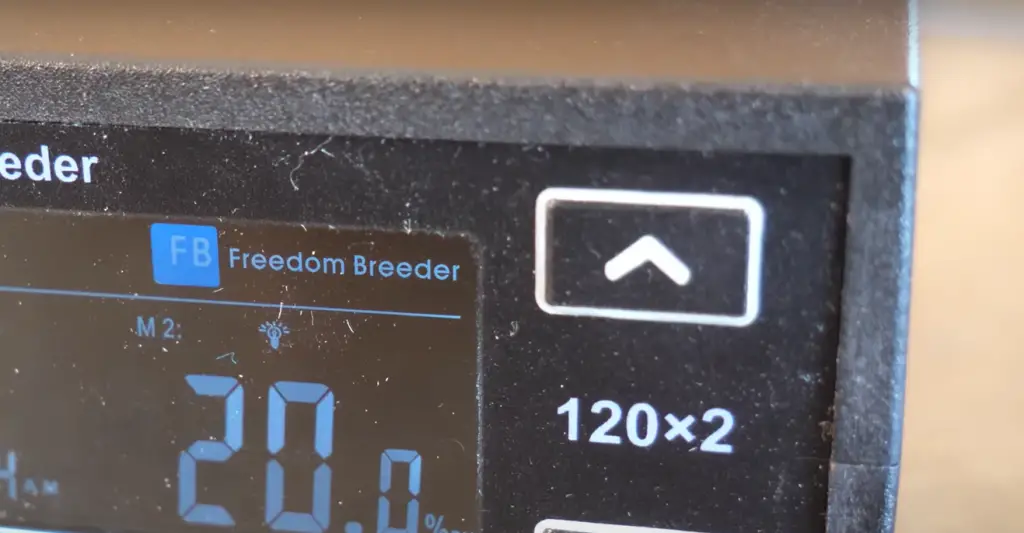
Digital thermostats are more expensive than analog thermostats but are worth the investment if you want to ensure your reptile is kept at the correct temperature. [1],[2],[3]
Buyer’s Guide for the Best Thermostats for Snake Racks
Now that you know what thermostat options are there on the market , it’s time to choose the perfect one for your needs. To help you make your decision, we prepared this Buyer’s Guide where we highlighted all the major factors.
Type of thermostat
The first thing you need to think about is the type of thermostat. We already talked about all the possible options. Each has its own set of pros and cons that you need to consider before making a decision.
The most popular type is an on/off thermostat. As the name suggests, this type of thermostat turns the heating element on and off to maintain the desired temperature. The main advantage of on/off thermostats is that they are very simple to use and don’t require any special knowledge or skills.
Another popular type is a proportional thermostat, in our article we highlighted pulse and dimmed options. These types of thermostats are more sophisticated than an on/off thermostat because they don’t turn the heating element on and off. Instead, they regulate the amount of power going to the heating element. Proportional thermostats are more accurate than on/off thermostats and can save you money in the long run because they use less energy.
Single or multiple device control
Another thing to consider is whether you need a single or multiple device control. If you only have one snake rack with a single heating device maintaining it, then a single device control will suffice. However, if you have multiple heating devices, then you’ll need a multiple device control thermostat.
Single device controls are more common and typically less expensive. However, they can be less convenient if you have multiple racks. [1],[3],[4]
Alarm system
Some thermostats come with an alarm system that can notify you if the temperature gets too high or low. This is a great feature to have, especially if you can’t always be around to monitor the temperature.
However, not all thermostats come with an alarm system.
Temperature range
The next thing you need to consider is the temperature range. Each thermostat has a different temperature range that it can control. You’ll need to make sure that the thermostat you choose can reach the temperatures you need, obviously wider ranges are usually better.
There are also some thermostats that have adjustable temperature ranges. These are great if you want more flexibility or plan on using the thermostat for multiple purposes.
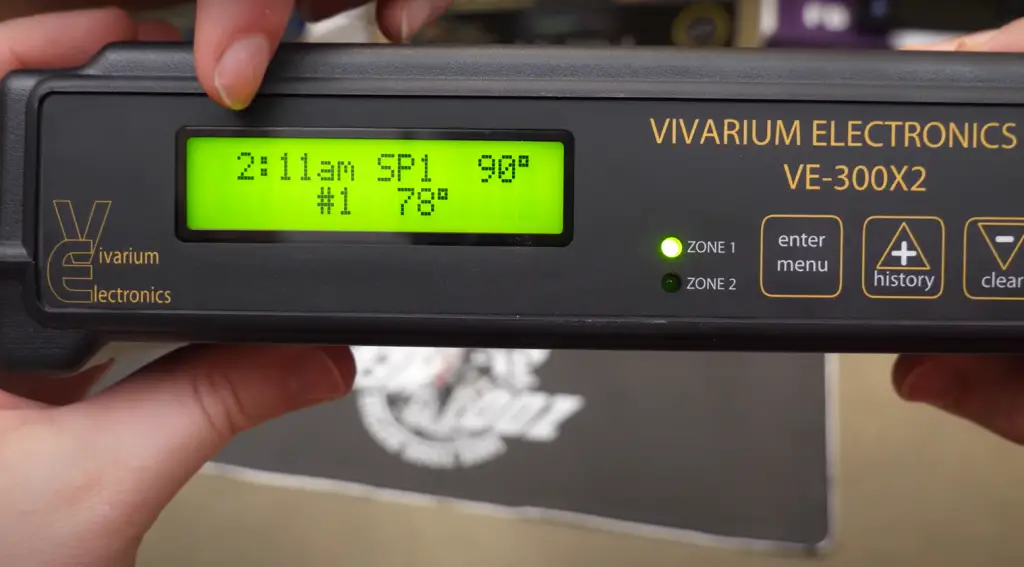
Finally, be sure to check the accuracy of the thermostat, as failing to provide the correct temperature can have disastrous consequences for your snake. [4]
Maximum wattage
Another important factor to consider is the maximum wattage. This is the maximum amount of power that the thermostat can handle. You need to make sure that the thermostat you choose can handle the power requirements of your snake rack.
However, some models may have a higher or lower wattage. Be sure to check the specifications before making your purchase in relation to the heating device you have.Warranty
Finally, be sure to check the warranty before making your purchase. A good warranty will cover you in case anything goes wrong with the thermostat.
Most thermostats come with a one-year warranty. However, some models may have a longer or shorter warranty. Be sure to check the terms of the warranty before making your purchase. [3]
FAQ
Where does the thermostat go in a snake rack?
The thermostat goes on the outside of the rack, near the top. It is placed so that it can sense the temperature inside the rack. It shouldn’t be placed inside, as the snake moves around and this could mess the temperature accuracy.
The temp readings will be higher if you place your thermostat outside however, for that reason, it’s also recommended to get a thermometer to place inside the rack to get a more accurate reading of the temperature inside.
How do you heat a snake rack?
There are a few ways to heat a snake rack. The most common way is to use a heat cable. Heat cables are placed under the substrate, and they heat up the ground. This is a good way to heat a snake rack, because it simulates the natural heating that snakes get from the sun.
Heat strips are another way to heat a snake rack. These are an ideal way to heat smaller racks.
Heat mats of the correct size can also be placed under the rack, or on the side of the rack to provide some heat for your snake.
How many thermostats do you need in a snake rack?
This is a difficult question to answer as it depends on the size of your rack, the number of snakes you have, and your desired temperatures. Generally speaking, you will need at least one thermostat per snake, and more if you have a larger rack or want to maintain different temperature zones.
Useful Video: LET’S REVIEW!! | Inkbird Wifi Thermostat! | Mixology #57
Conclusion
So, what’s the best thermostat for a snake rack? It really depends on your needs and budget. There are many types of thermostats on the market, including on/off, dimmer and pulse thermostats. The main role of a thermostat is to maintain the consistent temperature in your snake’s rack, so it’s crucial to consider all the important factors when making a purchase.
We’ve highlighted five of the most popular thermostats on the market, but there are many other great options available. Make sure to consider the type of thermostat, temperature range, wattage, presence of alarm system and warranty when making your purchase. And don’t forget to shop around – prices vary significantly among retailers. We hope this article has helped you narrow down your choices and find the perfect thermostat for your snake rack!
References:
- https://www.mypetneedsthat.com/best-reptile-thermostat/
- https://petcareadvisors.com/reptiles/best-reptile-thermostat/
- https://www.frogpets.com/best-thermostats-for-reptile-amphibian-enclosures/
- https://www.reptiledirect.com/best-reptile-thermostats/






Leave a Review